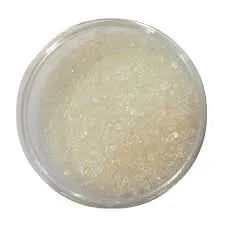Supplements for Bone Healing A Comprehensive Guide
Bone healing is a complex biological process that is influenced by various factors, including nutrition, lifestyle, and overall health. When a bone is fractured or damaged, the body initiates a series of physiological responses to repair the tissue. While a well-balanced diet rich in essential nutrients is critical for optimal healing, certain supplements can enhance this process, aiding recovery and improving bone health. This article explores the key supplements that can support bone healing and the science behind their effectiveness.
1. Calcium
Calcium is a fundamental mineral for bone health, making up about 99% of the bone mass in the human body. During the healing process, adequate calcium intake is essential for new bone formation and mineralization. Most adults require about 1,000 to 1,200 mg of calcium per day. Supplementing with calcium can be particularly beneficial for individuals who may not get enough through their diet, especially those who are lactose intolerant or follow a vegan lifestyle. Calcium citrate and calcium carbonate are popular forms of supplements, both of which are effective when taken properly.
2. Vitamin D
Vitamin D plays a crucial role in calcium absorption and bone metabolism. Without sufficient vitamin D, the body cannot effectively absorb calcium, leading to weakened bones and impaired healing. It is synthesized by the body when exposed to sunlight, but many people do not get enough, especially in winter months or for those who have limited sun exposure. Vitamin D supplements, typically in the form of vitamin D2 or D3, can help achieve optimal levels. The recommended daily allowance (RDA) is around 600 to 800 IU, but some individuals may need higher doses, particularly if they have low blood levels of the vitamin.
3. Magnesium
Magnesium is another essential mineral that plays a vital role in bone health. It assists in the conversion of vitamin D into its active form, which in turn helps with calcium absorption. Additionally, magnesium is involved in over 300 biochemical reactions in the body, including those contributing to bone remodeling. Research indicates that magnesium deficiency can negatively impact bone density and increase the risk of fractures. Supplementing with magnesium, typically in the form of magnesium citrate or magnesium oxide, can support overall bone health and healing.
supplements for bone healing

4. Vitamin K2
Vitamin K2 is less well-known but equally important for bone health. It plays a critical role in the process of osteocalcin carboxylation, which is necessary for binding calcium to the bone matrix. This process helps ensure that calcium is effectively used for bone strengthening rather than accumulating in the arteries or soft tissues. Adequate intake of vitamin K2, either through diet or supplements, is essential for those undergoing bone healing, particularly post-fracture. Fermented foods like natto, as well as certain supplements, are good sources of vitamin K2.
5. Collagen
Collagen is the most abundant protein in our bodies and forms the scaffold for bone structure. Supplementing with collagen peptides may enhance bone healing by providing the necessary amino acids for new bone formation. Research has shown that collagen supplements can increase bone mineral density and encourage the activity of osteoblasts, the cells responsible for bone formation. Generally, hydrolyzed collagen or collagen peptides in powder or capsule form are recommended for easy absorption.
6. Omega-3 Fatty Acids
Omega-3 fatty acids, found in fish oil and flaxseed oil, have been shown to exert anti-inflammatory effects that can support the healing process. Inflammation is a natural response to injury, but excessive inflammation can impede healing. Omega-3s also play a role in the formation of new bone tissue and may enhance the healing of fractures. Including omega-3 supplements in your diet can help balance inflammation and promote a healthier recovery.
Conclusion
While surface-level treatment and care for fractures are fundamental, attention to nutrition is equally vital in the healing process. Supplements such as calcium, vitamin D, magnesium, vitamin K2, collagen, and omega-3 fatty acids can play an essential role in bone healing. However, it’s important to consult with a healthcare professional before starting any supplement regimen, particularly if you have pre-existing health conditions or are taking other medications. Remember that a holistic approach, including a well-balanced diet, regular exercise, and proper medical care, is key to optimal bone healing and overall health.

